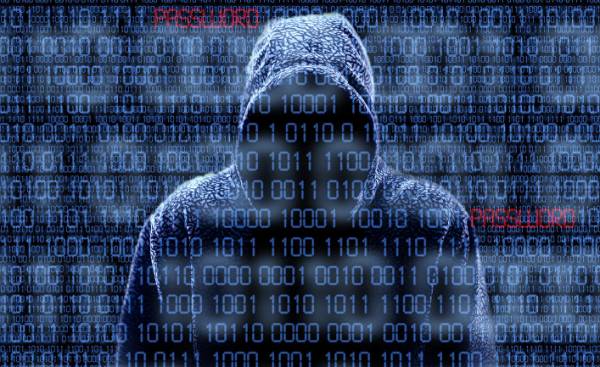
The Washington political class at the moment is probably not able to reach agreement on many issues, but almost all of its representatives agree that Russia should be punished for interfering in the presidential elections. The only question is, how severe must be the punishment. Many are concerned that if the consequences will be too soft, then Russia will interfere in future elections and perhaps even in a larger scale than it was in 2016. The result is a consensus about forming the combinations, consisting of very clear warnings, enhanced sanctions and conduct retaliatory cyber operations, and all of this should demonstrate to Russia that it will pay a very high price for interfering in American policy, and that prospect will deter her intervention in the future.
One of the elements in this package — we are talking about the new and more stringent sanctions regime — was passed by the Senate in June 2017 98 votes to 2. It includes automatic updating of its provisions in the event that if Congress does not take concrete steps to lift the sanctions. The Washington Post reported that the second element of retaliatory cyber operations — was approved by the Obama administration before the end of his term, and therefore does not require any additional action from the White house of Donald trump in order for bureaucracy to act. John Carlin (John Carlin), a former assistant attorney General for national security, came out with a new proposal for a preventive element in his article. It is contained in an article that was recently published in the journal Atlantic Monthly. John Carlin proposes to create a “special switch” which will automatically start the response, if the intelligence community will come to the conclusion that any country has interfered in our elections.
Such steps are bound to have a cathartic appeal, and they, of course, will allow both the White house and Congress to show they have done something significant in response to what the Washington Post called a “crime of the century”. However, what makes sense politically does not always lead to effective policies. Deterrence of cyber attacks from Russia and other countries — involves the vital interests of the United States, but until we carefully consider how we are going to do it, eventually we will encourage the same behavior that I hope to prevent. The adoption of those principles which proved so effective on the issue of the Soviet nuclear threat, is our best formula to deter Russian attack.
The first principle is to examine their motives
If war is politics by other means — as you know, is exactly what Clausewitz described it, then containment can be considered a political conviction through other means. The essence of this approach can be formulated as follows: to convince the enemy that his desired goal will be for him too difficult or too costly. This will require an accurate assessment of what the enemy hopes to achieve, how important is it for these goals, and what outcome he fears. Wrong idea about their aspirations and fears may lead to underestimation of how much pain he is willing to endure to achieve their goals, or to the inability to predict his responses.
If you appreciate the concerns and fears of Russia concerning cyber operations, it is tempting — but this is the wrong way to move from effect to cause, to explore the social divisions in the United States, exacerbated by the presidential campaign of 2016, and to assume that the activity of Russia’s influence in General is aimed at destabilizing our country. The impression that this assessment reinforces the conclusions concerning the Russian goals that were proposed by the senior officials of intelligence agencies.
“They do it in order to kill us,” said former Director of National intelligence James Clapper (James Clapper). “To succeed,” the Russian need to sow discord, he added. A widely-quoted Report of the intelligence community (Intelligence Community Assessment) about Russia’s role in the presidential election of 2016 is composed in the same patterns, and it is stated that the immediate purpose of Russia consists in “undermining confidence in the democratic process in the United States” and “undermining the U.S.-led liberal democratic order.” The political consequences of such an evaluation is clear: if we do not give a decisive response to Russian aggression, so it will encourage even more aggression.
In fact, contrary to expectations Clapper, Russian diplomats and experts in foreign policy complain about the instability and unpredictability stemming from the fact that they think the internal political crisis in the United States. According to Fyodor Lukyanov, one of the most respected foreign policy analysts and editor-in-chief of magazine “Russia in global politics” Russian “are in a state of severe confusion and even a little scared of those events that unfold in Washington.” This American mess is in Moscow, more of a concern than jubilation, and therefore we should focus on the facts, to throw a deeper look at the Russian goals before formulating a political response to their activity, directed on rendering of influence.
Not every threatening behaviour stems from aggressive intentions. If what we perceive as aggression, in fact, is a product of fear and insecurity generated by the fact that Moscow considers the aggressive intentions of the United States, in this case, too, a sharp response can amplify the fears of Russia and to give effect to a dangerous escalation spiral of hostilities. Recent reports that hackers Russian intelligence has infiltrated the systems of some American nuclear power plants and other energy companies (perhaps it was made for preparation of response options in the case of the United States on the cyber attack against Russia) is an ominous sign of the probability of events in a similar direction. In contrast, better understanding of existing concerns can facilitate the negotiation of shared commitments regarding non-interference in the internal politics of each country, including provisions that the attack on the electoral system and other critical infrastructure elements will be assessed as an act of war.
The second principle is to make the punishments and rewards were significant
The meaning of the long-accepted axiom in the theory of deterrence is that the enemy must not only assume that his opponent until the end implements its threat, but to assume that he can avoid punishment, if you will behave accordingly. If the enemy believes that the threat is illusory, it will have little incentive to fulfil the demand of his opponent. But if, in his opinion, he will be punished regardless of the performance or non-performance claims, he with the same success can challenge your opponent.
This principle suggests three important conclusions. First, it is extremely important effective communication with Russia and with other countries, which we would like to keep. As noted by Thomas Schelling (Thomas Schelling) in his on controlling the work “Arms and influence” (Arms and Influence), without a clear communication policy of containment may be incorrectly understood or incorrectly interpreted, which increases the probability of escalation. Refusal to negotiate and the vain hope for something to punish Russia by isolating it, was counterproductive to our goals of deterrence.
We need to talk with Moscow about our approach to liberterian, explaining what is unacceptable to us, and what are the consequences of bad behavior. By doing this, we ourselves must understand that we can actually keep, and what isn’t. Propaganda is difficult to define and almost impossible to limit, without compromising in this much-touted in the United States the principles of freedom of the media, while cyber-espionage will inevitably be a fact of international life, regardless of our preferences. Deterrence of cyber attacks on the electoral system and other critical infrastructure elements is not only possible, but desirable.
Secondly, this makes it doubly important to accurate intelligence analysis. He is not only supposed to be used by our policy makers to understand the cyber threat and determine who is behind them, but Russia and other kiberugrozy must to some extent be confident that the United States was able to identify operations conducted under a foreign flag. If such understanding is missing, that Russia and the other players will be inclined to suspect that the United States immediately fell on Russia the blame for cyber attacks on the electoral system and move to the stage of punishment regardless of whether Russia is to blame or not. It beats hunting in Russia to fulfill our requirements and stimulates other States and nonstate players to use a completely ready cybertechnology to simulate the Russian cyber attacks in the hope to raise the level of hostility in U.S.-Russian relations.
That danger makes it special care to apply not only to a correct interpretation of the survey data, but also to procedural issues that would have forced other players to believe that our intelligence agencies used rigorous methods, they are independent of party affiliation and are good experts in its analysis of Russia. The Washington Post reported that former CIA Director John Brennan (John Brennan) personally and secretly took away a couple dozen people for a quick assessment of the impact of Russia’s actions given the established White house political deadline, and selected experts were hiding their work from other members of the intelligence community, however, these actions have not led to an increase degree of confidence.
In addition, none of the report was not confirmed that Putin personally instructed to conduct a hacker attack during the elections. Not helped in this respect and other intelligence agencies of the country, as also reported by the Washington Post. The refusal of the analytical services of the intelligence community to discuss alternative options on the basis of those testimonies which have been studied by their experts, creates even more doubt as to their methodological rigor.
The third conclusion is that we need to build in rewards for good behavior in our approach to deterrence, no matter how distressing it was for Americans after the intervention in the elections. The Senate sanctions package is valid in the opposite direction; its provisions make the lifting of sanctions is virtually impossible, regardless of the behavior of Russia. The authors of this bill seem to believe that included in it complexity for its abolition reinforce the deterrent value due to the emphasis on the resolve of the United States.
However, in this regard it would be appropriate to remember the history of sanctions on the basis of the amendment of Jackson-Vanik, which was introduced in 1974 to pressure the Soviet Union and the increase of Jewish emigration. Moscow reacted to this pressure, rather, a tightening, not easing immigration rules. Even after the collapse of the Soviet Union (in Russia there was no longer any restrictions on those wishing to leave the country of the Jews), these sanctions remained in force until 2012. Our inability to remove the sanctions after Russia provide significant assistance to intelligence and logistics at the holding of the United States counter-terrorism operations after September 11 2001, has become a significant irritant elements in our bilateral relations and has contributed little to the promotion of good behavior on the part of Russia.
Tritium principle: to preserve the stability of
Deterrence at the expense of depriving something to focus on measures aimed at persuading potential hackers that their efforts will not be successful, and that they did not receive the benefits to which we aspire. If they meet serious obstacles in the way to your goal — it may be too difficult or too costly, then the likelihood of them committing these actions is reduced. Such an option finds particular application in cyberspace, where more than 90% of successful break-ins, including the case with the National Committee of the Democratic party, are conducted using a primitive hacking techniques that can be easily prevented.
There are several important steps we can take to reduce our vulnerability to cyber attacks on our electoral system and on the critical infrastructure elements. In the cyberspace we can make a coordinated effort to address the vulnerabilities for software updates and the use of relevant tools for malware detection. This will make the conduct of cyber attacks much more difficult, although not prevent the possible invasion by the sophisticated players. Complication the road to success can have an important deterrent quality, and not just because it makes such operations more costly, but also because the result of narrowing the space for potential attackers with the most modern — this usually occurs with the support of state capabilities, while analysts get the chance to focus more on identifying hackers.
Since no protection is not able to prevent all attacks, we should consider supplementing our efforts to protect through the establishment of a separate analog control systems for our critical infrastructure that will be able to continue working offline if our digital control system will be damaged. A return to paper ballots in elections will not be easy. The backup creation process control systems for power plants and water supply systems will be long and costly, but as a result of sharply reduced incentives for attacks on critical elements of our infrastructure, and greatly increase confidence in our country’s ability to withstand such attacks.
Finally, it should be said that our efforts to strengthen our resistance against foreign influence should not be limited to the digital world. Moscow has been carrying out campaigns since Czarist times and the Soviet Union throughout the cold war period is constantly held against the United States aggressive campaign of disinformation. At the time we regarded them as annoying moments, to be answered with diplomatic moves and corrective press releases, and not as an existential threat to our national security.
Today a hidden price of causing emotional satisfaction of effort to demonize Russia is that they distract us from having to deal with the internal roots of the growing social fragmentation and cleaning up your own home. Probably nothing more does not support the confidence of our opponents in campaigns to influence how the hysteria about Russian actions that gripped Washington in the autumn of last year. Restore confidence to our nation that our Republic could not be deposed by propaganda, is perhaps the most effective tool of deterrence, in our possession.
George Bibi is the Chairman of the company BehaviorMatrix, LLC, involved in the analysis of texts. In addition, he is Director of the program in the field of intelligence center in the national interests (Center for the National Interest). Prior to that, he worked as chief analyst for Russia at the CIA, and also performed the duties of the special adviser on Russia and the countries of the former Soviet Union, Vice-President Cheney.






